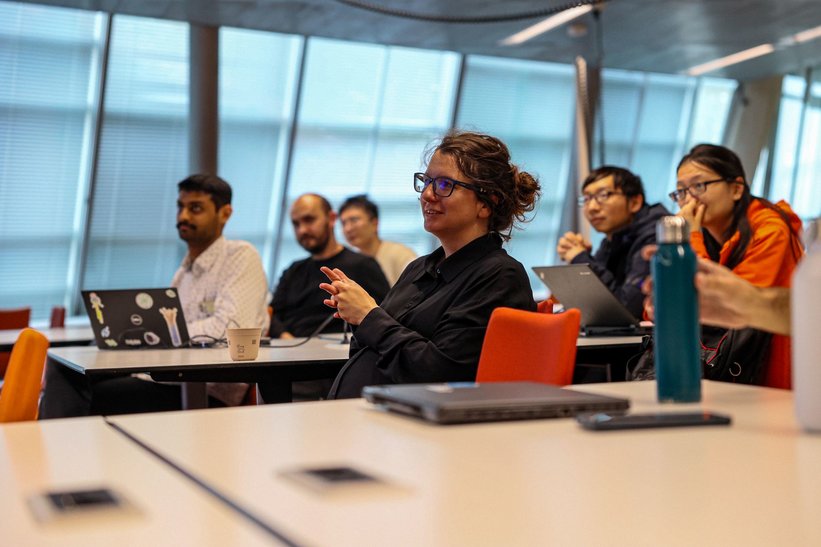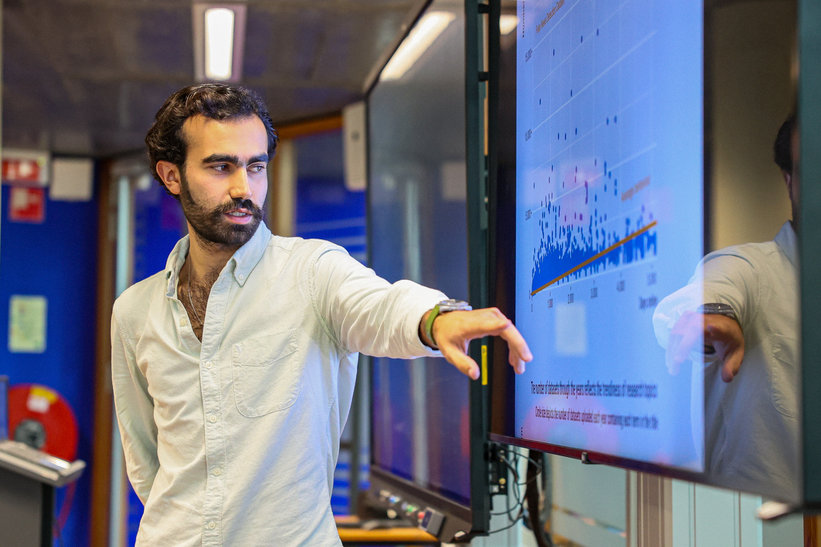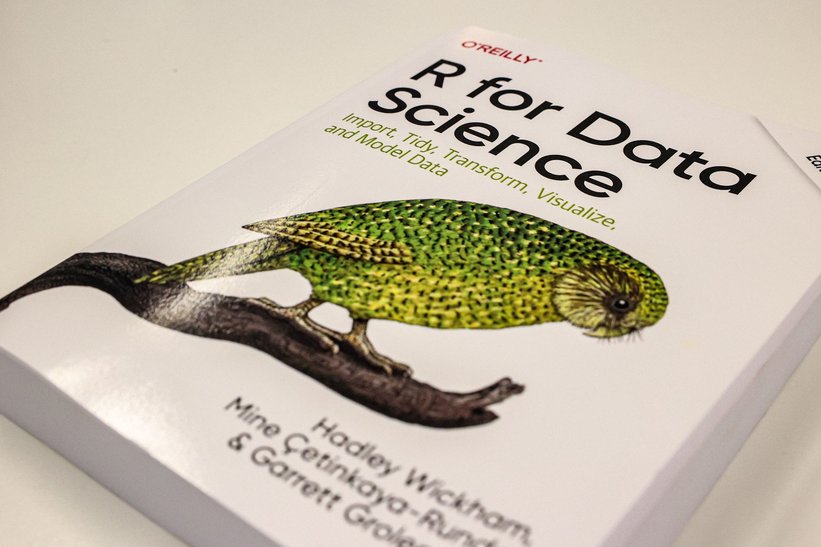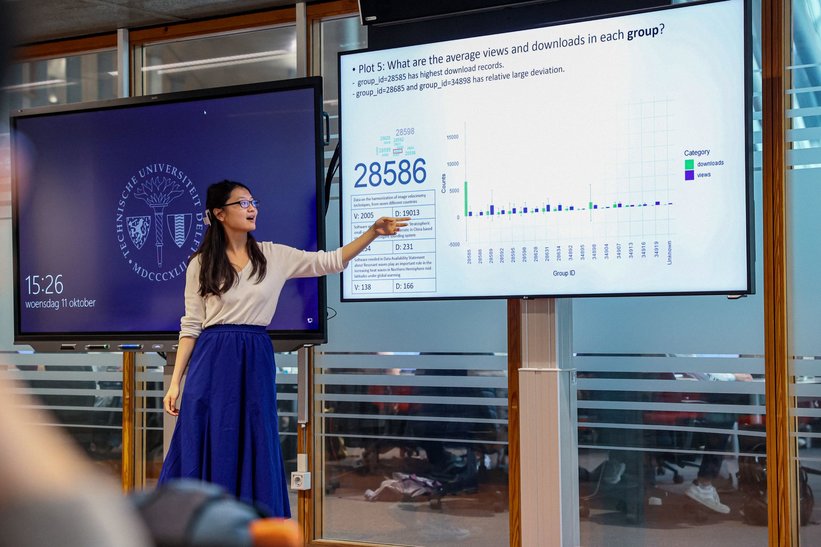First TU Delft R Plot-a-thon inspiring!
From creative data visualisations to community building
It’s official. The first TU Delft R Plot-a-thon has wrapped! A collaboration between TU Delft R Café and 4TU.ResearchData, the event challenged a group of enthusiastic participants to harness their creativity and put their R programming skills to the test. They came up with diverse data visualisations, exchanged ideas, and strengthened connections between R users within the TU Delft community.
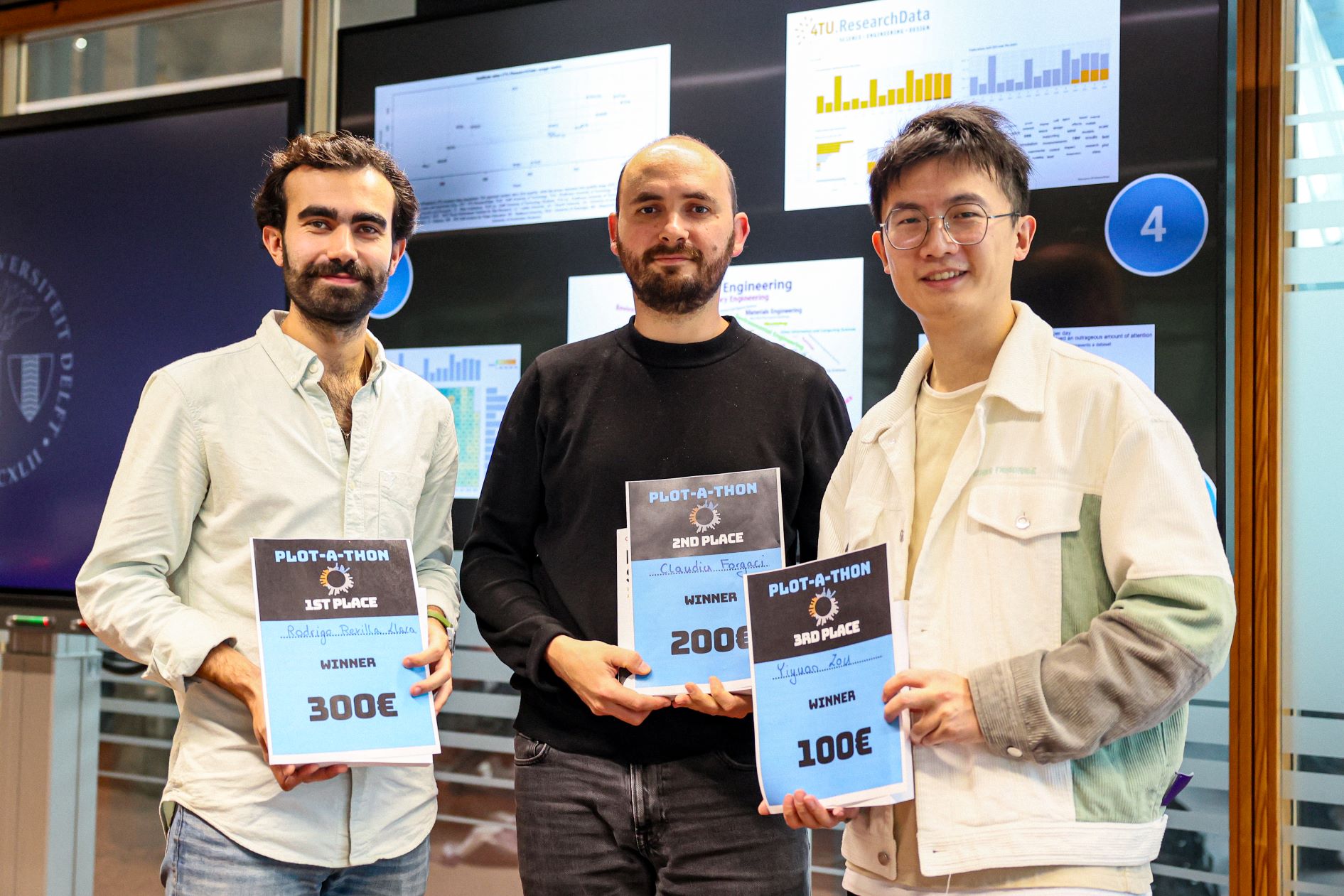
From left to right: Rodrigo Revilla Llaca, Claudiu Forgaci, Yiyuan Zou
Growing awareness for R
“The TU Delft R Café started about two years ago”, said co-organiser Aleksandra Wilczynska, Data Solutions Engineer for the 4TU.ResearchData team. It’s a community of people interested in the programming language called R, a versatile and powerful tool for statistical computing and data analysis. According to Wilczynska, many people at TU Delft work with Python, a more general programming language. They already had an established community for support, but nothing like that existed for R. “Our idea was to bring all those people that actually use R together so that we can meet and learn from each other.” One of the advantages of R is that it's open source and free so everybody can use it, said Wilczynska. “In addition, everybody can contribute to it and this is very much in line with the values at the TU Delft Library."
We people that use R together, meet up and learn form each other
Wilczynska
Open data challenge for all levels
In addition to monthly discussions on programming related topics, R Café members came up with the idea of a plot-a-thon as an inclusive event for people with all levels of programming experience. “It involves some data processing, but it's rather lightweight compared to a hackathon or data-thon,” said Wilczynska. They teamed up with the 4TU.ResearchData Repository, an open-source platform for research data, to create the first of its kind event. Participants were given two weeks to create and submit visualisations using R and the statistics about data sets hosted in the repository. The event culminated on October 11th when participants showcased their plot presentations.
Contestants perspectives
The top prize went to Rodrigo Revilla Llaca, a master’s student in Artificial Intelligence Technology. The self-described visualisation enthusiast and experienced R user said: “This competition allows you to put into practice three key aspects of research: data exploration, insight generation, and intuitive presentation. The short deadline helps you sharpen your time management skills, which is key in real-world research. Finally, seeing the work done by other contestants exposes their creative process, offering valuable insights, techniques, and visual inspiration for future projects.” In addition to receiving a cash prize, Revilla Llaca’s visualisation will be featured on the 4TU.ResearchData repository website.
Assistant Professor of Urban Design, Claudiu Forgaci, who took second place, said he could not resist the challenge of exploring and visualising a real-world dataset. “I also want to support the growth of the R community at TU Delft, and the best way to do that is by being active and participating in such events,” he said. “R is a very flexible programming language and its amazing visualisation packages allow for so much creativity.” Finally, third place went to PhD candidate Yiyuan Zou (Faculty of Aerospace Engineering) who was familiar with R, but said there were still a lot of things he wanted to learn. “Given the same dataset, I was very glad to see various visualisations,” said Zou. “If you are a beginner or want to start learning R, this is a good chance to start your journey. If you are an expert or software engineer, you may be able to get inspiration from other people's work."
R is flexible and has much creativity in it's visualisation packages
Building the community
The first edition of the R Plot-a-thon was a great learning experience, according to Wilczynska. “We found out that there are many more R users around TU Delft than we expected, so that was a nice discovery,” she said. “It was interesting that the participants focussed on many different things and I was surprised by the crafty methods they used to process and analyse the data, but also to gather information from the data.”
Join the R Café
Although there is no concrete plan for another plot-a-thon, there are plenty of ways for people to get involved with R Café. “We try to be as inclusive as possible, so whether you're just starting your journey with R or if you’re more advanced, please join us,” she said. People can check the website for an agenda and to sign up for the mailing list to receive information about upcoming events. Some discussion topics have already been selected, but the team also welcomes suggestions. “I want participants to be as active as possible in creating new sessions. I think it would be very nice to activate the community and let them decide what topics are relevant and interesting."
At the R Café is inclusive as possible: from starters to advanced. Join us!
Want to suggest a discussion topic for the future? Send R Café an email!
